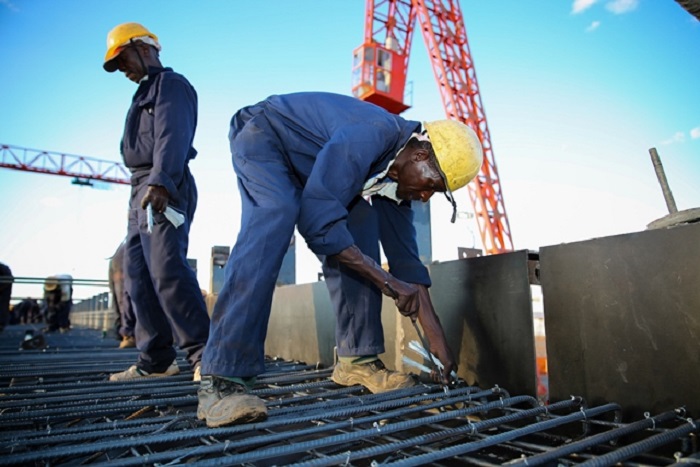Civil Engineer Jobs in Canada with Visa Sponsorship for Foreigners
Canada is experiencing a boom in infrastructure projects, and there’s a growing demand for skilled civil engineers to make these visions a reality. The good news? Many Canadian employers are open to sponsoring visas for qualified foreign engineers.
Advertisements
From towering skyscrapers in Toronto to expansive bridges in Vancouver, civil engineers play a pivotal role in shaping the physical landscape of Canada. For immigrants with a background in civil engineering, Canada not only offers robust job opportunities but also provides supportive immigration pathways to help integrate these skilled professionals into the workforce. This article offers a comprehensive guide for foreign civil engineers aspiring to build their careers in Canada, including details on visa sponsorship and job application processes.
Entry-Level Skills and Experience Required
So, you’re a foreign civil engineer with a thirst for new challenges and a maple syrup addiction (we won’t judge). To be a competitive candidate for entry-level civil engineer jobs in Canada with visa sponsorship, you’ll typically need a bachelor’s degree in civil engineering or a closely related field. Strong analytical and problem-solving skills are a must, along with the ability to work independently and as part of a team.
Here are some additional skills that will make your resume shine:
Advertisements
- Proficiency in computer-aided design (CAD) software like AutoCAD or Civil 3D
- Excellent written and verbal communication skills in English (and possibly French, depending on the region)
- Understanding of relevant Canadian building codes and standards
It’s also a big plus if you have some internship experience under your belt, showcasing your practical skills and work ethic.
Regions with the Highest Payment Structures
Now, let’s talk money because, let’s face it, that’s a big motivator. Here’s a breakdown of the top 5 regions in Canada offering the highest salaries for civil engineers:
- Alberta (Calgary, Edmonton): Alberta’s booming oil sands industry fuels the demand for civil engineers, with average salaries reaching over $100,000 CAD per year for experienced professionals.
- British Columbia (Vancouver, Victoria): With a focus on infrastructure development and a growing population, British Columbia offers competitive salaries for civil engineers, averaging around $90,000 CAD annually.
- Ontario (Toronto, Ottawa): Ontario, Canada’s most populous province, has a constant need for civil engineers for various projects. Average salaries hover around $85,000 CAD per year.
- Saskatchewan (Regina, Saskatoon): Saskatchewan’s resource sector drives the demand for civil engineers, with average salaries reaching up to $80,000 CAD annually.
- Northwest Territories (Yellowknife): While the cost of living is higher, civil engineers in the Northwest Territories can command impressive salaries, averaging over $95,000 CAD per year, due to the region’s remote location and challenging projects.
Salary Expectations for Immigrants
Here’s a quick table summarizing average starting salaries for entry-level civil engineers across Canada:
| Region | Average Starting Salary (CAD) |
| Alberta | $70,000 – $80,000 |
| British Columbia | $65,000 – $75,000 |
| Ontario | $60,000 – $70,000 |
| Saskatchewan | $55,000 – $65,000 |
| Northwest Territories | $60,000 – $70,000 (can be higher depending on remoteness) |
Summary:
As you can see, starting salaries for immigrant civil engineers in Canada are attractive, with the potential to grow significantly with experience. Keep in mind that these are just averages, and your specific salary will depend on your qualifications, experience, and the company you work for.
Companies Hiring Civil Engineers in Canada (Open to Immigrants)
Many Canadian engineering firms are eager to welcome talented immigrant civil engineers. Here are a few examples:
- AECOM: A global leader in infrastructure design and engineering, AECOM is known for its commitment to diversity and inclusion.
- WSP: Another global engineering giant, WSP offers a wide range of civil engineering services and actively seeks skilled professionals from abroad.
- Hatch: A Canadian-based engineering, procurement, and construction (EPC) firm, Hatch focuses on sustainable infrastructure projects and welcomes international expertise.
- Stantec: A prominent Canadian engineering firm, Stantec offers a variety of civil engineering services across the country and is open to sponsoring visas for qualified candidates.
- SNC-Lavalin: A global engineering and construction company, SNC-Lavalin has a strong presence
Visa Types and Options for Civil Engineers
Now that you know the exciting career opportunities awaiting you, let’s delve into the visa options to call Canada home. Here are two main pathways for civil engineers:
- Provincial Nominee Programs (PNPs): These programs are run by individual Canadian provinces and are specifically designed to attract skilled immigrants to address labor shortages. Several provinces, including Alberta, Saskatchewan, and Ontario, have PNP streams dedicated to engineering professions. To qualify, you’ll need to meet the specific requirements set by the chosen province, which typically involve factors like education, work experience, and language proficiency. The advantage of PNPs is that they offer a faster processing time compared to the federal Express Entry system (explained below).
- Express Entry (Federal Skilled Worker Program): This is a points-based immigration system managed by the federal government. You create an online profile and receive points based on factors like your age, education, work experience, language skills, and adaptability. A high enough score makes you eligible to be invited to apply for permanent residence in Canada. While this process can take longer than PNPs, it allows you to live and work anywhere in Canada.
Additional Considerations:
- Labor Market Impact Assessment (LMIA): Many employers will require you to obtain an LMIA before sponsoring your visa. This is a document issued by the Canadian government confirming that hiring a foreign worker won’t negatively impact the job market for Canadian citizens or permanent residents.
- Educational Credentials Assessment: If your engineering degree is from outside Canada, you’ll likely need to get it assessed by a designated organization to ensure it meets Canadian standards.
Where to Find Civil Engineer Job Opportunities – Work in Canada
There are several resources available to help you find civil engineering jobs in Canada with visa sponsorship:
- Job Boards: Popular job boards like Indeed, Workopolis, and Glassdoor list numerous civil engineering positions across Canada. Utilize the search filters to find jobs mentioning “visa sponsorship” or “immigration friendly.”
- Company Websites: Many engineering firms in Canada advertise open positions on their company websites. Check the careers section of the companies mentioned earlier (AECOM, WSP, etc.) and others you’re interested in.
- Government of Canada Website: The official Government of Canada website provides comprehensive information on immigration programs and job search resources specifically for newcomers.
- Recruitment Agencies: Specializing in engineering placements, recruitment agencies can connect you with potential employers seeking immigrant talent.
How to Apply for Civil Engineer Jobs as an Immigrant in Canada
Here’s a step-by-step guide to applying for civil engineer jobs in Canada with visa sponsorship:
- Research and Choose Your Visa Path: Explore both PNPs and Express Entry to determine which option aligns best with your profile and desired timeline.
- Tailor Your Resume: Highlight your skills and experience relevant to the Canadian job market. Emphasize any Canadian building code knowledge you possess.
- Target Your Applications: Don’t just blast out resumes everywhere. Research companies actively recruit immigrant civil engineers and tailor your application materials to each specific position.
- Network and Connect: Build connections with professionals in the Canadian civil engineering industry through online forums or professional organizations like the Canadian Society for Civil Engineering (CSCE). Attending industry events once you’re in Canada can further enhance your network.
- Prepare for Your Interview: Be ready to answer questions about your qualifications, experience working in a different country, and your desire to build a career in Canada.
- Patience is Key: The immigration process can take time. Be patient, stay organized with documentation, and celebrate each milestone on your journey to becoming a Canadian civil engineer.
By following these steps and utilizing the resources available, you can increase your chances of landing your dream civil engineering job in Canada with a visa sponsorship to pave the way for a fulfilling career.
Advertisements






